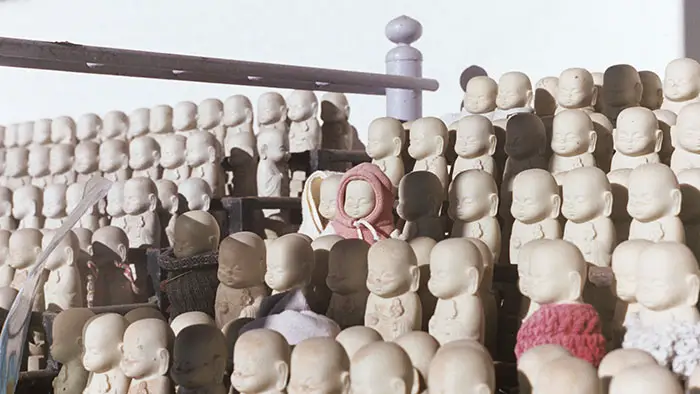
I live in this world where half of my life is on the left, and the other is on the right. And I’ve always found that it’s fantastic when you find a bridge between the two and after seeing this, it’s not as sterile a process as you think, and it’s also an emotional process as well. And to me, that bridge is what allows people to be able to talk about it in rational ways and to be able to look and approach that subject because it is such a hot button subject.
I’ve noticed that you’re doing very well on the festival circuit. It’s getting out there. What has your impression been on its response after all your screenings?
Kira Dane: It’s been interesting because all of the screenings have been virtual and online, that we haven’t had a chance to connect to anyone. Well, we had our world premiere at Financer, which seems so long ago. But since then, we’ve just been following it online, which is hard. It’s hard to get a sense of how many people are watching it and what their impressions are, but we’ve had people reach out and tell us how much they love it, whether they leave it at that or whether they said that they’ve gone through similar experiences. And the coolest thing is hearing people, especially the people who’ve had an abortion or a miscarriage and really relate to it and really feel moved by it. It’s just the coolest, best thing.

“…immediately disillusioned by the cost of equipment, and just the people who had access to use that equipment…”
We mostly cater to independent filmmakers, and let’s say you have a good friend who wants to make a film similar to what you did here. What’s the best lesson you learned, making Mizuko that you would give to your friend?
Kira Dane: Hire a producer. But I don’t know, wait, let me think about that for a second. Katelyn, do you want to take that?
Katelyn Robledo: Yeah. I think going back to how I even first started getting involved in film. I wanted to be a cinematographer, and I was immediately disillusioned by the cost of equipment, and just the people who had access to use that equipment, and the culture that still exists around it. A lot of what I like to do is a rejection of all of that. And being like, you don’t need to follow what anybody else is doing, you don’t need to shoot something with a specific camera. You need to focus on the story and what visuals would aid that story in the best way. Everything that we did was based on the story that Kira initially wrote. It never really went the other way. So I think just being genuine to what the film is about and who you are as a filmmaker is more important than what’s in style or what the big production companies are doing.
And Kira, can you say anything about the storytelling aspect of your film?
Kira Dane: Yeah, I was just about to say, I think for me… I think living in New York and also the film industry in general—there’s a lot of pressure to be creating and always be dishing out films continually. I was still self-conscious about the fact that I didn’t have so much experience under my belt. I wasn’t always doing that. I wasn’t always like hustling to make more. And I think there’s something good to be said about that. I think you learn a lot from continually creating, but I’m more someone who likes to wait until I know there’s a story that’s worth making. And this boosted my confidence in the fact that I can.
There must have been a lot of germination going on, just sitting there and seeing what sprouts. How long was that process? And I would imagine being able to sit and think about it a lot, would also give you a clear vision as to what the final product would be.
Kira Dane: Yeah. I think it was okay because it was… I feel like the films that I have made, that were good, always turned out… It was always this point… There’s this moment at the beginning where I was always like, I think this could be good. And I don’t usually say that to myself unless I believe that. And I remember I just had this day where I started to know about musical creo and I was thinking about my experience, and I was just like, this would make a perfect topic. And it was a long time before the film was made. But I think it was in the spring of 2017, and we finished in the fall of 2019. But the writing process took, I think over a year because yeah, the grant was 2018. So yeah, it was a full year, and Katelyn and I were both working different jobs, and we started out doing it all in our free time. So it was a prolonged process to get it moving.
Mizuko screened at 2020 AFI Docs, 2020 SXSW Film Festival, and 2020 Odense Film Festival.
